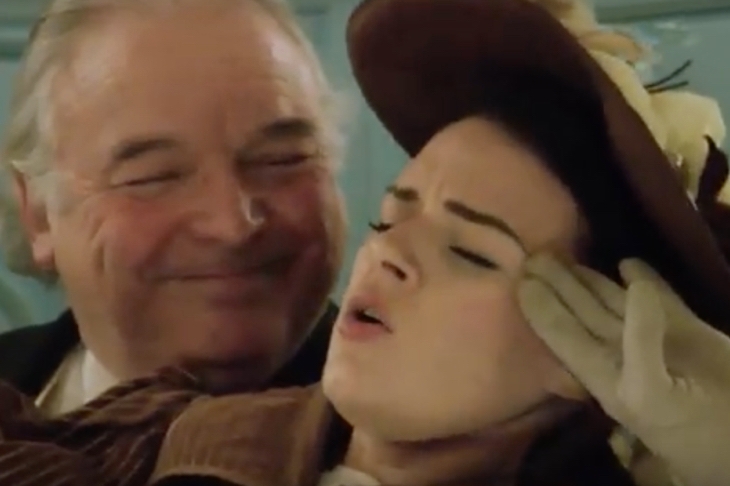Spending an evening watching an homage to Victorian melodrama in the drawing room of a gentlemen’s club sounds like the conceit of a Wodehouse story. That being nothing unusual in my faintly ridiculous existence, I trotted to the Savile Club last Friday to watch London By Night, a collaboration between John Waters and Felix Rigg, a concert pianist-turned-property auctioneer.
Spectator columnist Martin Vander Weyer took the villainous lead in this story of mystery and intrigue. Though he is renowned in Yorkshire’s thespian circles, news of his ability to combine George Sanders and Rex Harrison in a most convincing fashion had not filtered down to London until now. Resplendent in top hat, frock coat and stock, and bearing more than a passing resemblance to Asquith-era Churchill, Martin snarled, spluttered, caroused and cajoled his way through this enjoyable hour of theatre.
Kirsty McLean, a postgraduate student at Trinity Laban, gave a delightful performance as the piece’s heroine, Phyllis Willis. Possessed of a lyrical, full-bodied voice with an enviable range, she is well on her way to becoming a superb operatic soprano. If her voice was at times a little strained, I put that down to a week of intensive rehearsals. McLean’s light comic acting was a fine counterpoint to Vander Weyer’s malignancy, especially during his attempted seduction of her.
James Whittaker, a veteran of the Grim’s Dyke Company, bounded about the confined stage. He was particularly impressive in the passages of complex dialogue so common to this genre – especially so after what I’m reliably informed was a riotous opening night party. John Waters, whose costume made him look like Roger Daltrey in a dress, was amusing as the mad bag lady who interrupted every scene. His performance was a straight cop from any number of Monty Python sketches, and all the better for it.
I must make special mention of Felix Rigg’s score. It would have been all too easy to write an accomplished pastiche which hit all the right notes but left no impression. He avoided this, and produced an inventive score, with both humour and tenderness to match the script. Music’s loss is the property world’s gain.






Comments